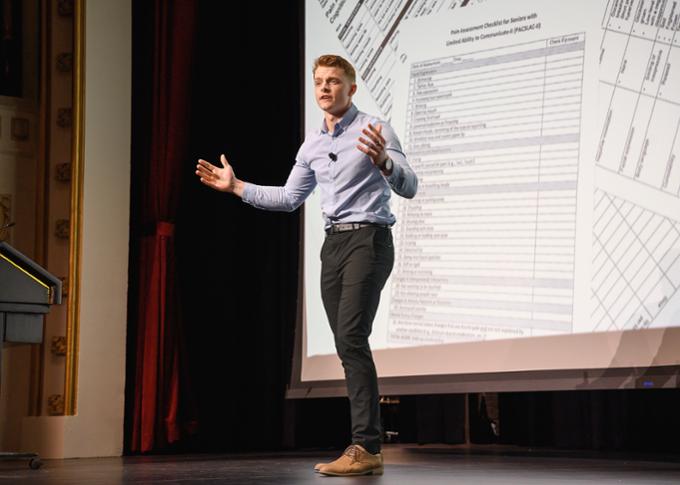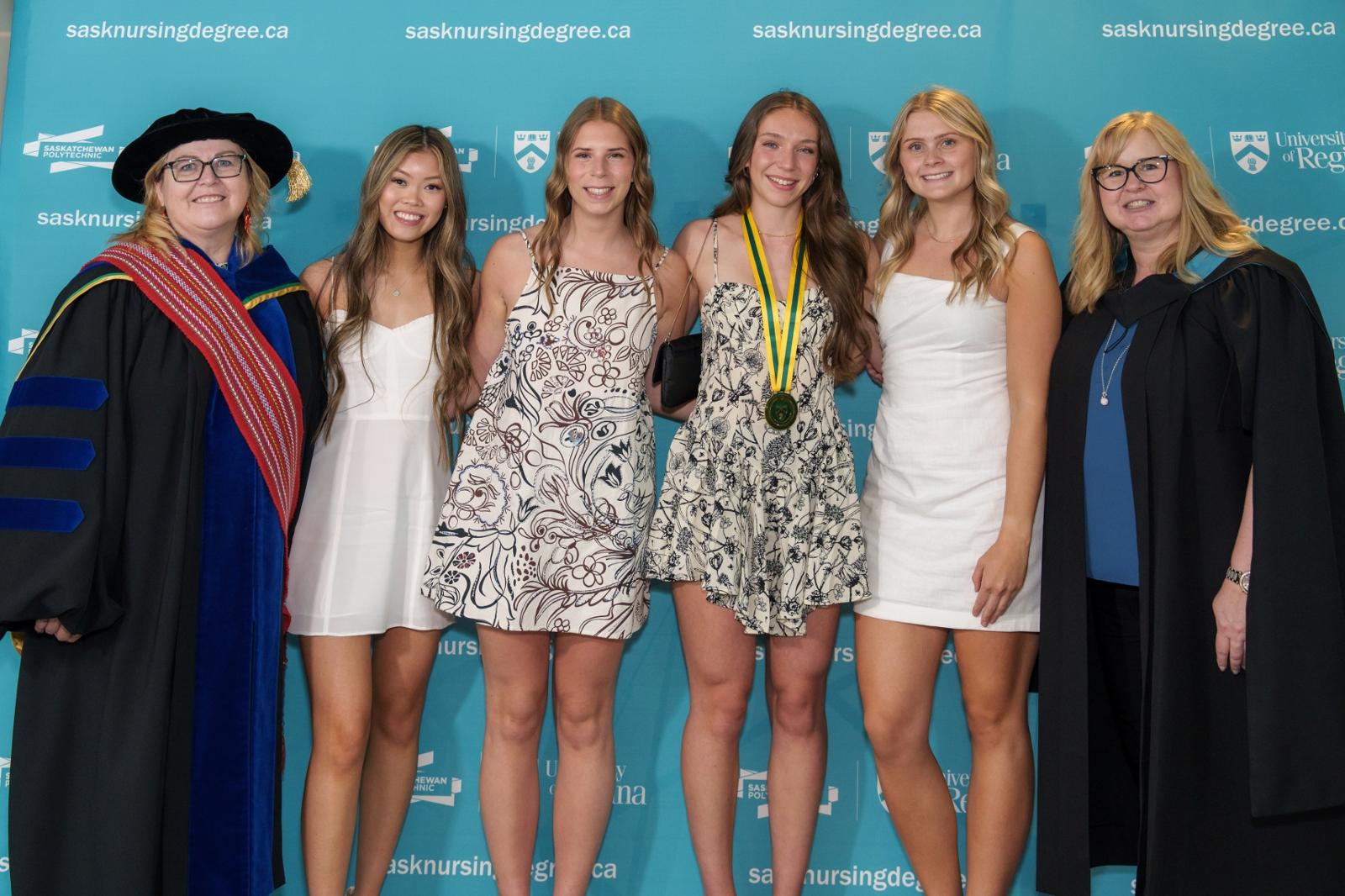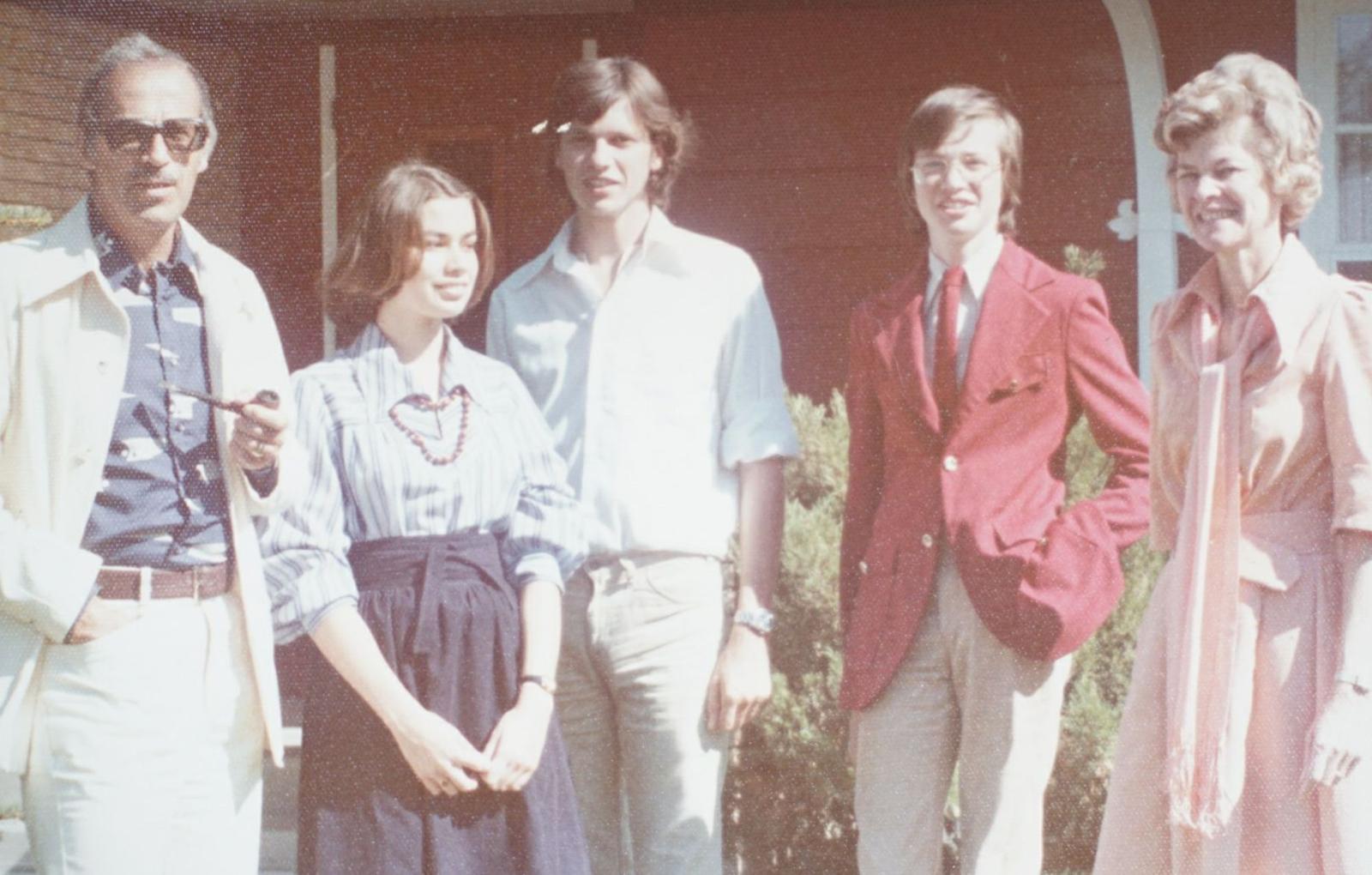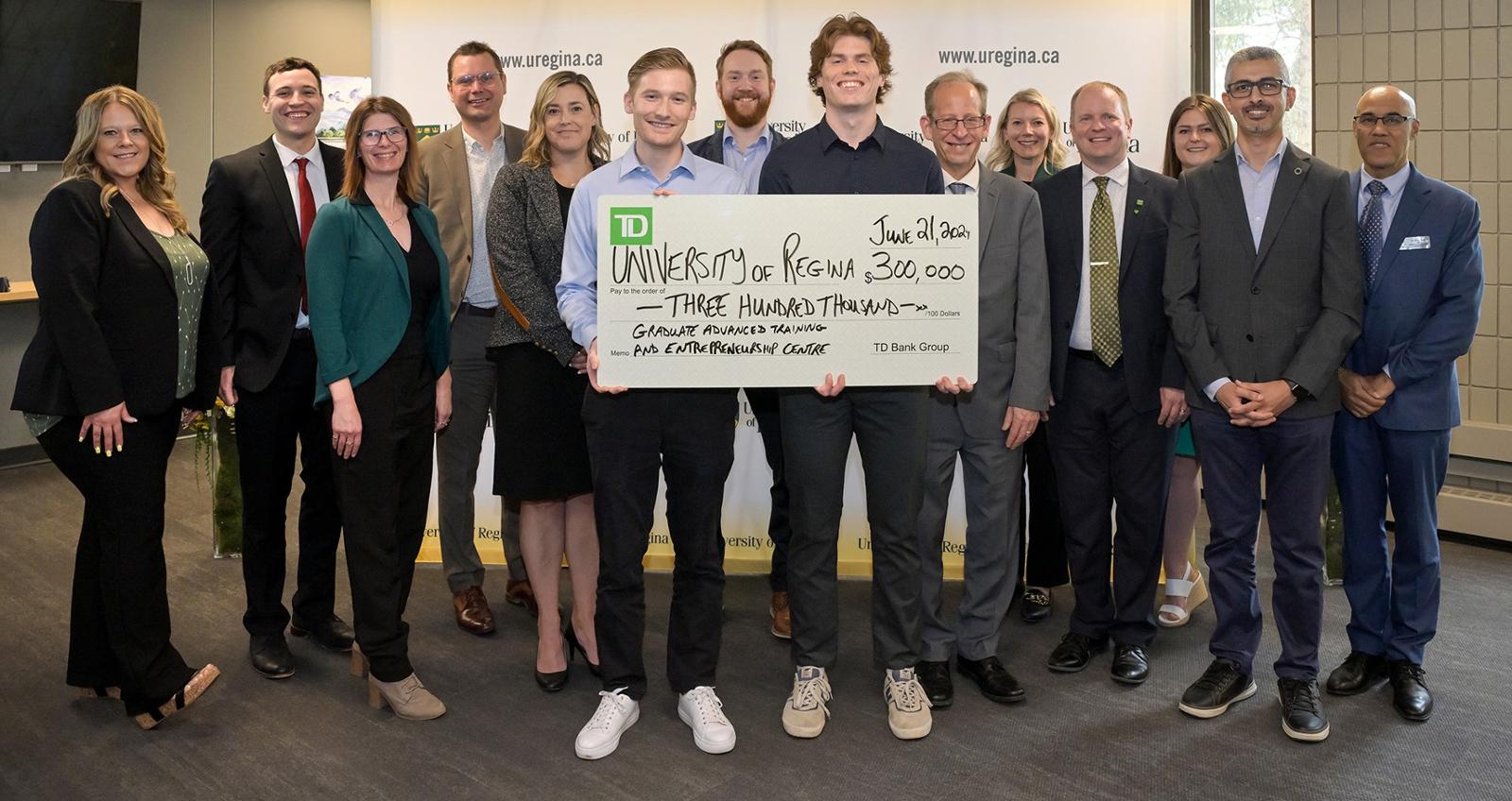Imagine taking a complex research topic, something you’ve spent countless hours delving into, pouring your heart and soul into, and then presenting it in front of an enthusiastic crowd…in three minutes or less.
That’s what eight University of Regina graduate students did this week for the 2023 Three Minute Thesis (3MT).
The students, who hailed from the faculties of Science, Arts, and Media, Art, and Performance presented to over one hundred and fifty spectators gathered at Darke Hall to hear about their projects that ranged from artificial intelligence to pollution to Indigenous art – and more.
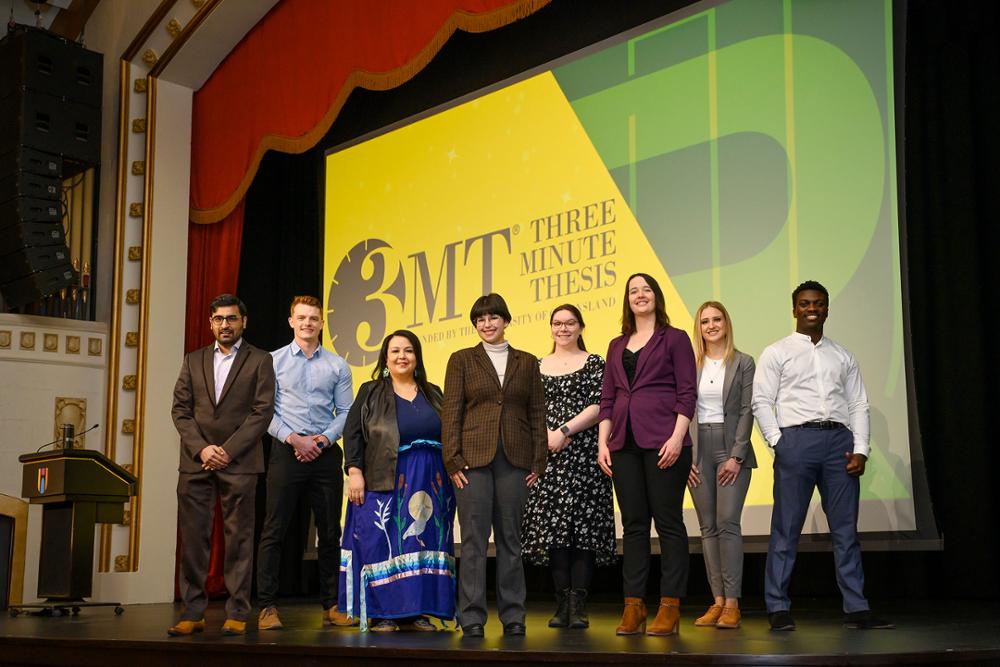
(L-R) Three-Minute Thesis competitors Ali Usman, Andy McLennan, Josephine Forest, Nahanni Young, Megan Poulter, Kaitlyn Crawford, Shaelyn Carr, and David Akinmade.
Credit: U of R Photography
3MT is an internationally recognized competition for thesis-based graduate students in which participants present their work and its wider impact in three minutes or less, using only one static slide. Another goal of the event is for students to present their work in accessible and compelling ways. Judges then rate each student based on specific criteria.
I always knew I was passion-driven, but learning to communicate my research in an impactful and comprehendible way allowed me to think more about the community and real-world implications of the work we do. Andy McLennan, U of R psychology grad student
At the end of the night, it was psychology grad student Andy McLennan and his presentation Pain in Dementia: How to Assess Pain When No One is Speaking who took home the $1,500 first place prize and will move on to the Western Regional 3MT Competition taking place in Saskatoon in May.
We caught up with Andy to get his reaction after his big win.
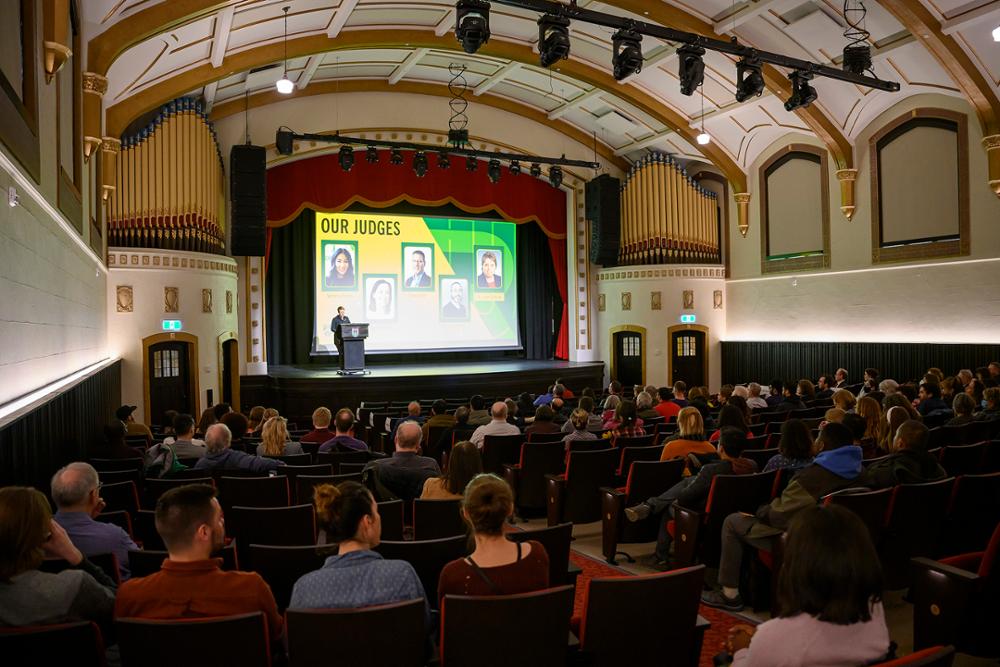
Over one hundred and fifty community members gathered at Darke Hall for the 2023 Three Minute Thesis competition.
Credit: U of R Photography
How did participating in 3MT teach you something about yourself?
Participating in 3MT taught me a lot about my passion for research. I always knew I was passion-driven, but learning to communicate my research in an impactful and comprehendible way allowed me to think more about the community and real-world implications of the work we do.
How has it helped you prepare for your next steps in your studies?
3MT has helped me in several ways. It has allowed me to focus on next steps in my research and think deeper about what areas to address. Personally, I have always looked to create meaningful change for others, academically and clinically so 3MT has given me confidence and a new platform to continue that process.
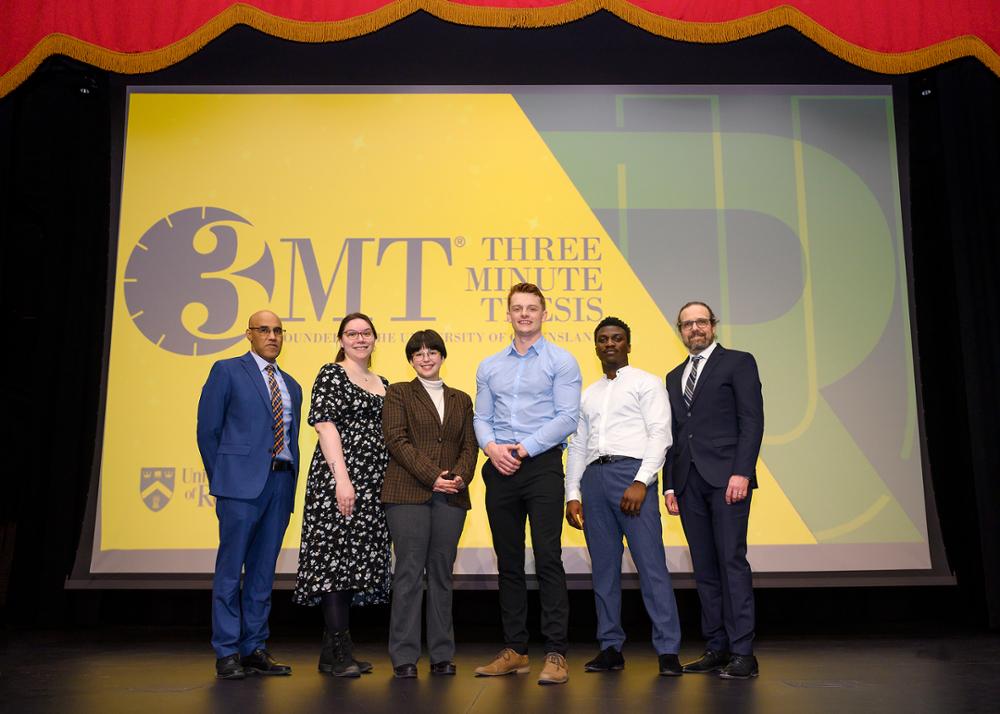
Individual award winners pose with Dr. Aziz Douai, Dean, Faculty of Graduate Studies and Research (left) and Dr. Chris Yost, Associate Vice-President (Research) (right)
Credit: U of R Photography
How have your instructors supported you along the way?
I have been very fortunate to have several key mentors in my early academic career, such as my research mentor, Dr. Thomas Hadjistavropoulos, who has been fundamental in my graduate development, with technical skills, theoretical knowledge, and passion for research.
This is reflected in the incredible laboratory team that we have. I am fortunate to also have mentorship from my fellow lab-mates. Other mentors at the U of R, such as Dr. Gordon Asmundson, have further guided my professional development and passion for the work I do.
Good Luck at Western Regionals, Andy!
Banner image credit: U of R Photography
About the University of Regina
Set in the heart of the Canadian prairies we are a comprehensive, mid-sized university where the opportunities are as limitless as the horizon. Our campuses are on Treaty 4 and 6 - the territories of the nêhiyawak, Anihšināpēk, Dakota, Lakota, and Nakoda peoples, and the homeland of the Michif/Métis nation. It is our responsibility to strengthen relationships with Indigenous communities to build a more inclusive future for all. Our three federated colleges, 10 faculties, 25 academic departments, and 18 research centres foster innovative research with practical and theoretical applications. We are committed to cultivating the potential of our 16,000 students and supporting their health and well-being. We take learning beyond the classroom through work and volunteer experiences to develop career-ready graduates.
Let’s go far, together.
